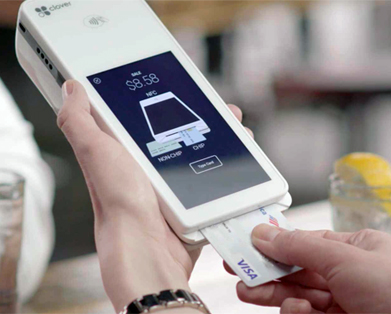When it comes to identity theft and fraud, there are a nearly endless number of ways you might be targeted. For example, a criminal with enough of your personal information may be able to file a tax return in your name, take out a payday loan, or even take over accounts you have, changing your contact information to some other mailing address they control.
Another type of fraud takes place when thieves open a credit card account in your name, and it’s easy to see why this could be so detrimental to your finances and your credit. Fortunately, you do have rights, and there are some steps you can take to find out if someone opened a credit card in your name, and even to prevent this from happening altogether.
How to find out if someone opened a credit card in your name
There are several steps you can take to find out if someone has opened a credit card account (or any other loan) in your name. Consider the following moves if you’re worried about existing account fraud and future prevention.
Pull credit reports
The best way to find out if someone has opened an account in your name is pulling your own credit reports to check. Note that you’ll need to pull your credit reports from all three bureaus — Experian, Equifax and TransUnion — to check for fraud since each report may have different information and reporting.
Fortunately, you can get access to your credit reports from all three credit bureaus for free using the website AnnualCreditReport.com.
Check your reports in detail
Once you have accessed all three of your credit reports, take the time to look over each one in detail. Make sure every account listed on your reports is yours, and that the account balances and other details listed are also correct.
If you don’t recognize an account on your credit report, you’ll need to report it right away using the steps outlined below. However, you should be aware that you can (and should) dispute other incorrect information and errors on your credit reports, including incorrect balances or accounts reported opened that are actually closed.
How to report identity theft
If you find an account on your credit reports that doesn’t belong to you, there are two possible explanations. It’s always possible you don’t recognize an account that is actually yours, but it is also possible you are a victim of fraud.
If the latter situation turns out to be true, and you discover an account on your credit reports you definitely did not open, you’ll want to take steps to halt the damage right away.
Reporting identity theft by someone you don’t know
According to the Federal Trade Commission (FTC), you should start by calling the company where the fraud took place — in this case, the credit card issuer. Explain to the credit card issuer that someone opened an account in your name and that they are trying to steal your identity. From there, ask them to close the account or freeze the account so no one can add new charges unless you agree. Also, take time to change the logins and passwords on all your other online accounts, just in case the thief has more of your information.
Your next step in preventing credit card fraud is placing a fraud alert on your credit reports, which you can do for one year without any charge. You can place a fraud alert using the following contact information for each of the credit bureaus:
- Experian.com
888-EXPERIAN (888-397-3742)
- TransUnion.com
888-680-7289
- Equifax.com
800-525-6285
Next, you’ll want to report the identity fraud to the FTC, which you can do with this online form or by calling 877-438-4338. The FTC suggests you may want to take the additional step of filing a police report in your municipality.
Once you have taken these initial steps, you need to follow up to make sure the identity theft is stopped in its tracks. Additional steps you should take include:
Closing new accounts opened in your name. With your FTC Identity Theft Report in hand, you need to call each company with fraudulent accounts in your name and ask for them to be closed. Make sure to keep track of who you spoke to and when, and keep any letters associated with the closures.
Remove bogus charges. Any new accounts with charges in your name should be disputed. Tell the company you did not make the charges and that they are fraudulent, and ask for the bogus charges to be removed.
Fix your credit reports. Contact the credit bureaus and use your FTC Identity Theft Report to have fraudulent accounts removed from your credit reports.
Reporting identity theft by someone you know
While identity theft is often perpetrated by online hackers and thieves you’ve never met, it’s also common for someone you know to be the culprit. If a friend, a relative or a colleague at work could be the one who stole your identity, you’ll want to use the same steps above to report the fraud. It’s likely they will face criminal charges for their acts, but you should report the crimes just the same.
What happens to my credit if I’m a victim of identity theft?
One of the hurdles of identity theft is the potential for damage to your credit score, but you may also be on the hook for financial losses. As the FTC notes, your liability for fraudulent charges on a credit card is limited to just $50, but your liability for fraudulent purchases made with your debit card or debit card number could be unlimited if you report the fraud more than 60 days after your banking statement was mailed to you.
The good news is, you can use a formal process to dispute fraudulent information and credit card accounts that arise from identity fraud. You may notice initial damage to your credit score if someone opens an account in your name and racks up charges they don’t pay for, but your credit score should rebound once the credit bureaus have removed the fraudulent accounts from your reports.
Preventing future credit card fraud
When it comes to identity theft, an ounce of prevention is worth a pound of cure. Here are some of the best steps you can take now to prevent credit card fraud and other types of identity theft in the future.
Consider signing up for identity theft protection
Identity theft protection companies like Identity Guard and ID Watchdog will oversee your credit reports and keep an eye out for fraud on your behalf. These companies charge a monthly fee or an annual fee in exchange for their services, but many also offer identity theft insurance that can protect you from financial losses and help pay for experts that can assist with the identity restoration process.
Consider a credit freeze or extended fraud alert
The FTC suggests setting up a one-year fraud alert once you notice signs of identity theft, but you can also ask the credit bureaus for an extended fraud alert that lasts for seven years. As an alternative, you can also set up a credit freeze with each of the credit bureaus, which will prevent anyone from opening new accounts in your name until you personally take steps to “unfreeze” your reports.
Take smart steps to protect your personal information
There are other steps you can take to prevent hackers and thieves from getting their hands on your personal information in the first place. These include using a mobile wallet to protect your credit card account information, setting up multi-factor authentication on your accounts when available, signing up for account alerts so you know when a purchase is made, and taking the time to look over your credit reports several times per year.
By keeping a close eye on your accounts and making sure your information isn’t easy to find, you can avoid becoming a repeat victim of identity theft.
This article was originally published By Holly D. Johnson, bankrate.com.










